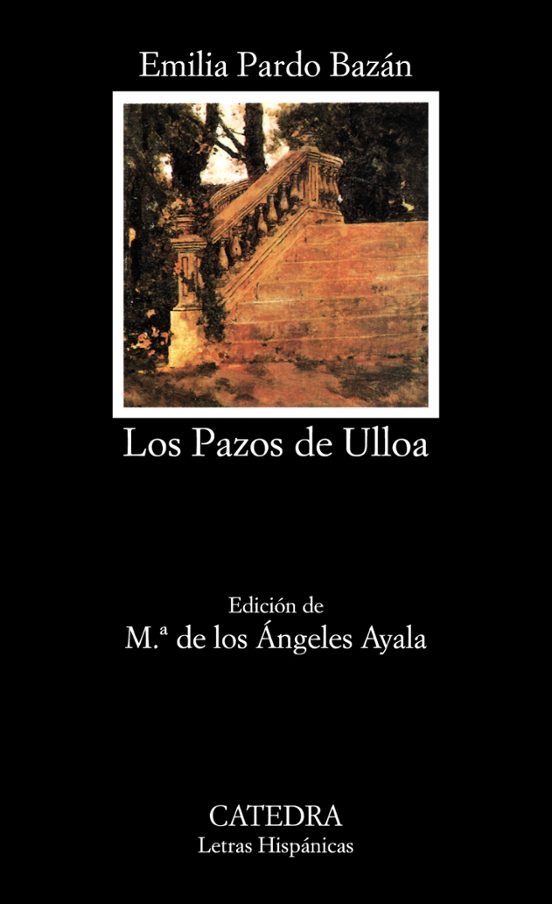Los Pazos de Ulloa / The House of Ulloa
 “>
“>
Autor:
EMILIA PARDO BAZÁN
Country:
Spain (ES)
Book Theme:
Classic novels and Authors representing your country culture
Publisher:
Ediciones Cátedra
Publishing Year:
Spanish aristocrat born in the city of A Coruña, in the bosom of a noble family with great purchasing power that allowed her to receive an unusual education for women of that time, she would not only receive music and painting classes, thanks to her father who defended women’s rights. Her passion for reading began in her childhood and at the age of eight she read avidly, at the age of nine she composed her first verses.
She was one of the key novelists of Spanish Realism and Naturalism in the 19th and early 20th centuries, writing in all literary genres:novels, journalism, essays, literary criticism, poetry, theatre, translation and publishing. In addition to being a literary reference, she was a staunch defender of women’s rights, a stance that makes her a forerunner of feminism in Spain.
National Award for Children’s and Young People’s
Abstract
A novel set in rural Galicia in the 19th century, specifically in an old feudal mansion in ruins called the Pazos de Ulloa, inhabited by rough and primitive characters.
Young Julián, a shy and educated priest, goes to the Pazos de Ulloa estate, an inhospitable and wild place, to take charge of the education of Perucho, the illegitimate son of the Marquis of Ulloa, Don Pedro Moscoso, a rude and ignorant man with the airs of a great lord influenced by his housekeeper, Prada, a manipulative woman.
The Marquis has left control of his business to Primitivo, a shrewd, ambitious and unscrupulous villager, whose daughter Sabela is his mistress. Don Julián advises Don Pedro to change the wild behaviour of the house but his efforts to improve and moderate the situation come up against Primitivo’s cunning, but he does manage to convince the Marquis to marry Nucha.
From then on there will be a struggle between the forces of good and evil. But we will also witness the political struggles of the time, the traditionalists and the liberals, the decadent rural nobility, the caciques, the clergy and the farmers…
This is undoubtedly one of the fundamental novels of Spanish literature of all times.



